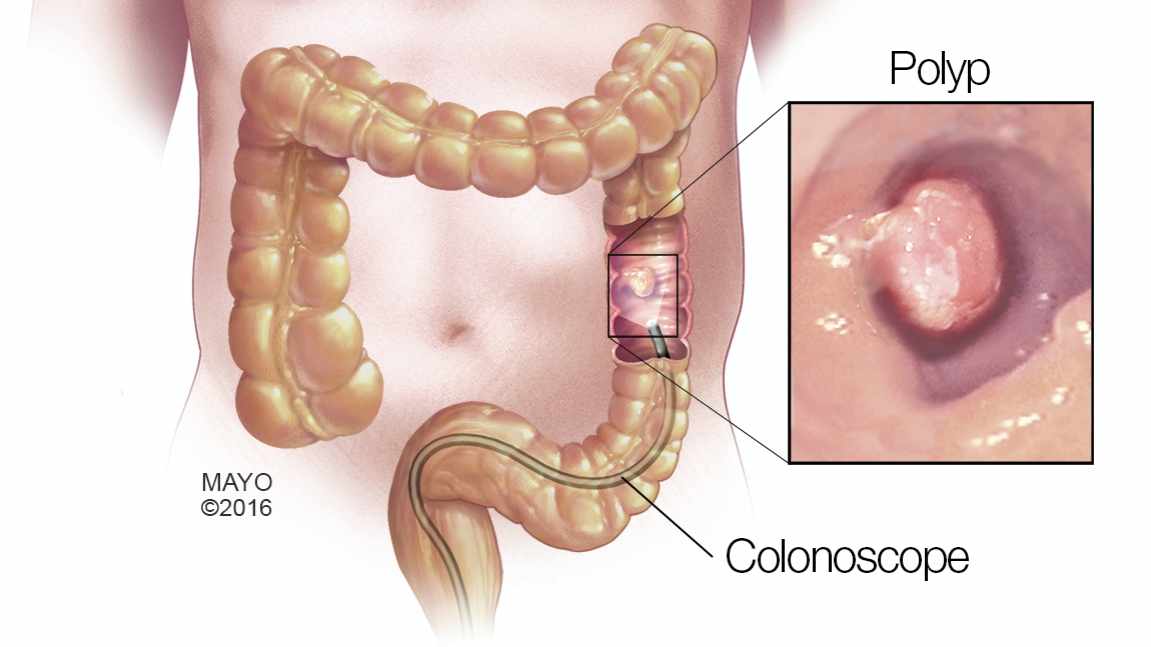-
Cancer
Mayo Clinic Q and A: Research Shows Benefits to Colon Cancer Screening Beginning at Age 50
 DEAR MAYO CLINIC: Is a colonoscopy still recommended for everyone when they turn 50? Are there other options? I am 54 and have no health issues and no family history of colon cancer, so have not yet been screened.
DEAR MAYO CLINIC: Is a colonoscopy still recommended for everyone when they turn 50? Are there other options? I am 54 and have no health issues and no family history of colon cancer, so have not yet been screened.
ANSWER: The U.S. Preventive Services Task Force recommends that everyone between the ages of 50 and 75 be screened on a regular basis for colon cancer. Several options are available for that screening, including colonoscopy.
Colon cancer is the second leading cause of cancer death in the United States. Studies have shown, however, that early detection and treatment significantly raise the likelihood that colon cancer can be cured. Research also has found there to be clear benefits for everyone to start screening for colon cancer no later than age 50. Some people at higher risk may need to begin screening sooner.
Colonoscopy is an effective, proven method for detecting colon cancer in its early stages, as well as for identifying and removing precancerous polyps. During a colonoscopy exam, a long, flexible tube, called a colonoscope, is inserted into the rectum. A tiny video camera at the tip of the tube allows the doctor to detect changes or abnormalities inside the entire colon. A colonoscopy procedure typically takes about 20 to 30 minutes. If no abnormalities are found, and you if don’t have an increased risk of colon cancer, then a colonoscopy can be repeated in 10 years.
Although colonoscopy is a very effective screening tool, some people prefer to avoid it, due to the thorough colon cleansing and the sedation this procedure requires. One alternative to colonoscopy is flexible sigmoidoscopy. For this procedure, a thin, flexible tube is inserted into the rectum. A tiny video camera at the tip of the tube allows the doctor to view the inside of the rectum and most of the lower part of the colon, called the sigmoid colon. A flexible sigmoidoscopy test takes about 10 minutes.
You don’t need sedation for a flexible sigmoidoscopy and the bowel cleaning is generally less extensive than it is for a colonoscopy. The major downside to this test is that it cannot find abnormalities in the upper colon.
If you choose to have a flexible sigmoidoscopy rather than a colonoscopy, then it may be beneficial for you to also have another colon cancer screening test called a fecal immunochemical test, or FIT, every year. This is a lab test that checks stool samples for hidden blood. When combined with an annual FIT, flexible sigmoidoscopy is generally repeated every 10 years, although you may need it more often than that, depending on your situation.
Another alternative for some people is to get only a FIT test or a similar stool test, called the fecal occult blood test, or FOBT, every year. If these tests reveal blood in the stool, a colonoscopy should be performed to try to determine the bleeding source. FIT and FOBT require no bowel cleansing or sedation, and stool sample collection is usually done at home.
Additional colon cancer screening tests include CT colonography, sometimes called virtual colonoscopy, as well as a stool test that looks for DNA changes in the stool. These tests are also less invasive than colonoscopy or flexible sigmoidoscopy, although a bowel cleansing is still necessary for the CT colonography. Stool DNA testing has been less extensively investigated compared to some other colon cancer screening tests, particularly with respect to the extent of follow-up needed for a positive test result.
At your age, you need to be screened for colon cancer. Make an appointment to see your doctor and review your options. Based on your medical history, along with other possible risk factors, the two of you can decide on the screening method and the frequency of screening that are right for you. — Dr. Lisa Boardman, Gastroenterology and Hepatology, Mayo Clinic, Rochester, Minn.







